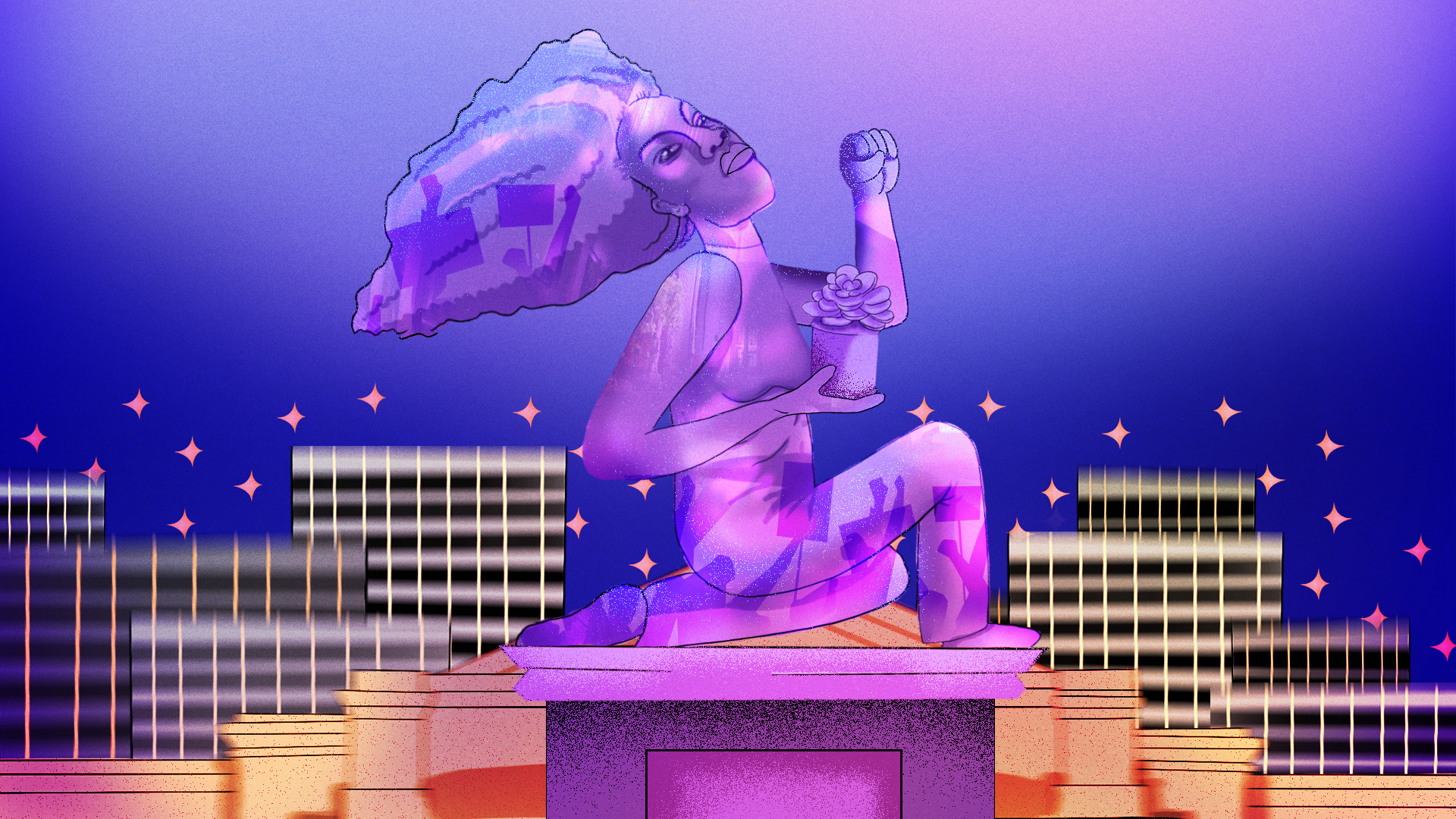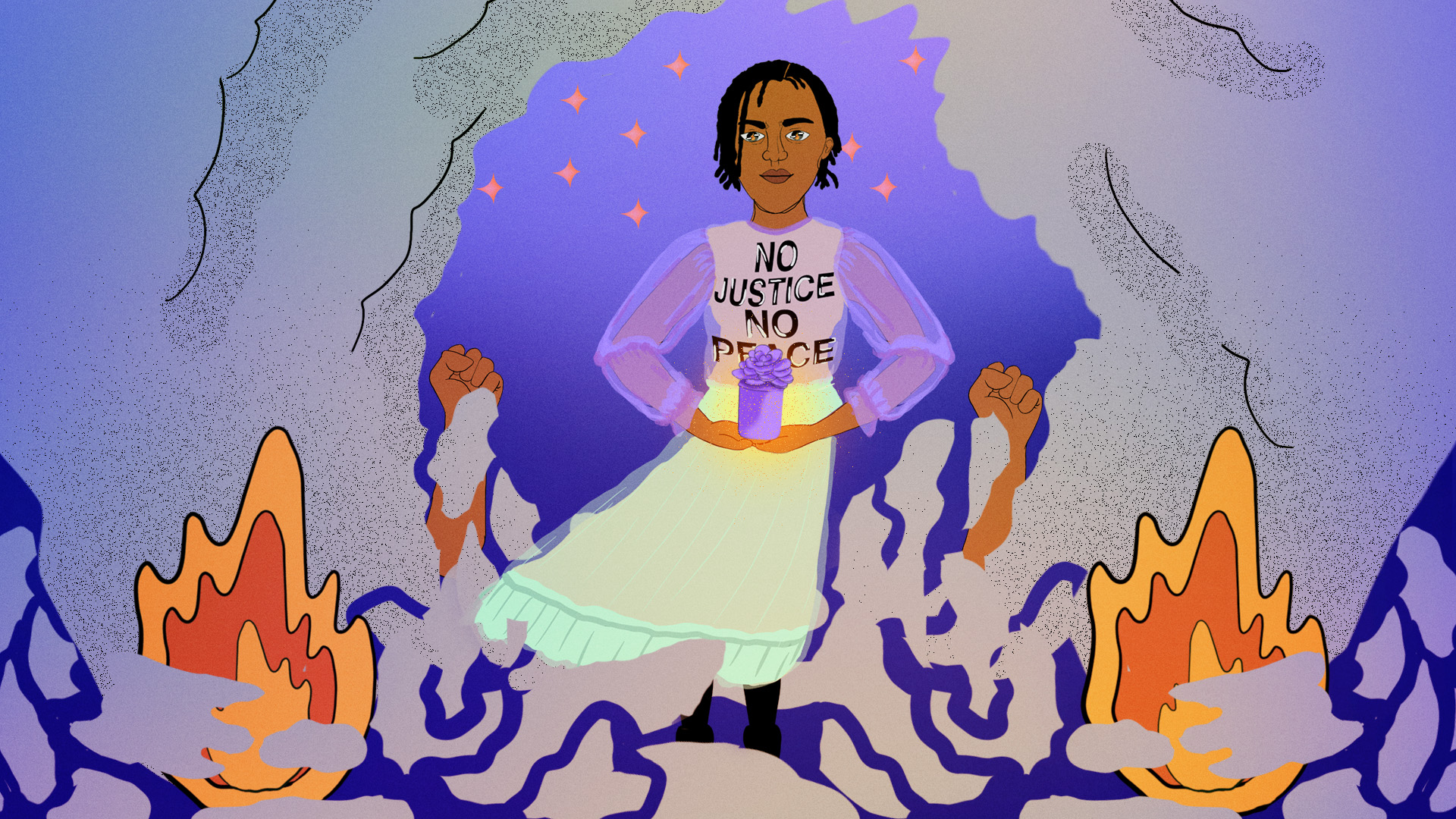The following is an essay published as part of +972’s New Futures project. In this series, writers, thinkers, and activists share how they visualize Israel-Palestine the day after the pandemic, as a way of transforming this dystopian moment into an exercise in radical imagination of rethinking through the past, present, and future of this region, and envisioning a different reality for all those living between the river and the sea.
________________________________________________________________________
If you had told me a year ago that the abolitionist movement’s call to “defund the police” would become a mainstream slogan in the United States, I wouldn’t have believed you. I’m somewhat ashamed to admit it, but although I had always believed in the movement’s ideas, I thought they were just another leftist pipe dream; another occasion when our imagination of a freer and fairer world gets the better of us.
But this past year, seeing the real, profound change that this movement has stirred feels like an answer to prayer. The wave of Black Lives Matter protests in 2020 is considered the largest mass movement in U.S. history. Minneapolis — the city where George Floyd was murdered after a police officer knelt on his neck for nearly nine minutes — is currently dismantling its police force and replacing it with community-led, holistic efforts that ensure people are actually safe and cared for. Various public school districts are abolishing the presence of police on their grounds. In some cities, social workers and mental health experts are taking back some of the load of community affairs that had been handed to the police for years. Even in places where structural change has not yet taken place, the conversations around justice are radically shifting.
The speed of this transformation suggests that many Americans, at least in principle, were already sided with the values of the abolitionist movement and agreed that such changes needed to happen — even when it seemed that abolitionists stood alone in their fight. The activists, scholars, and ordinary people fighting to make police abolition a reality are doing so because their lives, and the lives of their loved ones, depended on it. Even though Black Americans continue to be hunted down by the police, our calls for justice and accountability are becoming louder. The movement is growing, and as all oppressive systems know too well, such movements cannot be wiped out so easily. When that many people unite, something has to give.
Seeing the shift in how we think about abolition has given me hope. But the fascist groups who have led the United States, and their ilk lurking behind both major political parties, don’t want our kind of change. They want business as usual; the status quo serves them. It has been said many times that the U.S. criminal justice system isn’t broken, but is working exactly as it was designed to. Politicians’ pushback to the movement for justice can be cunning, with their performative gestures intended to distract us from the fact that they refuse to enact structural change. It is manifested in threats to arrest, suppress, or take away the rights of those who participate in grassroots demonstrations. They know and fear the power of the people.
*
As a Black Haitian woman from the United States, concerned with the lives of marginalized and oppressed people, I look at what’s happening to Palestinians and see it for what it is: an example of racism codified into law, enforced through years of imperialism and colonization. Even though the specifics of our oppression vary, I see how, much like others who look like me, Palestinians are attacked and discriminated simply because they’re Palestinian — based solely on their identity.
Palestinian and Black communities have repeatedly been told that we are inherently violent, criminal, and guilty of whatever violence is thrust upon us because of the color of our skin or the land of our ancestors. Both the Black and Palestinian causes are struggles for liberation in the face of oppressive, settler-colonial, institutionally racist states. And at their core, both of our struggles are rooted in the desire to live as humans, and to be seen as humans.
In advocating for Palestine, I am joining a long line of Black activists who understood that their struggles against racism, imperialism, and colonization were global. When I first learned about Palestine, I realized how, as a U.S. citizen, I am complicit in Palestinian suffering. I learned how, as a Christian who grew up in evangelical spaces, my religious identity is often weaponized by Christian Zionist ideologies against Palestinians of all faiths. I stand with Palestinians not just because of my shared struggles as a Black Haitian woman, but because I refuse to allow the atrocities against Palestinians to be committed in my name, as a Christian and as an American. Injustice may be common, but it should never be normalized.
The righteous anger people feel when they see the horrors inflicted upon Palestinians or Black Americans derives from a voice that screams that none of this is normal. Seeing yet another Israeli soldier shoot an unarmed Palestinian, such as the young man with autism Iyad al-Hallaq; or Israeli jets raining bombs on nearly 2 million people in Gaza; or thousands of Palestinians forced to move through checkpoints like cattle every day; all while Israeli settlers continue to steal more of their homeland, should produce constant outrage. Black women, both cisgender and transgender, being forgotten by the bearers of justice, while the police attack protestors more violently than murderers, should cause constant outrage. Standing against these atrocities shouldn’t be an extreme position; the atrocities themselves are what are extreme and inhumane.
It is in those moments — when you sit with that justified rage tearing at your heart and strangling your gut — that grassroots movements step in. There are large and vicious forces against us, determined to make sure that our goals never become reality, that justice is never served, and that villains get away unscathed. But we, the people who recognize the inhumanity of it all, are a force, too. We understand that there is no justice with the presence of policing, mass surveillance, and imprisonment. And we understand that there is no justice under occupation, apartheid, and exile.
*
Recognizing that truth, Palestinians have taken inspiration from the international boycotts that helped to bring an end to political apartheid in South Africa, and are leading their own nonviolent movement of Boycott, Divestment, and Sanctions (BDS) against Israel. Whether through personally boycotting goods made in illegal West Bank settlements, urging companies to withdraw investments that sustain the occupation, or calling on governments to stop selling weapons to Israel, Palestinians are reminding us that we can all do our part in pressuring Israel to abide by international law and treat Palestinians with equality, dignity, and respect.
Boycotts are not merely an expression of disapproval — they are a tangible, proactive, and legitimate strategy. Taking resources away from mechanisms of oppression — like the movement to defund the police in the United States — has been key to blocking state violence and standing in solidarity with oppressed communities. Divestment has also proved effective, for example, in efforts to combat the climate crisis, helping to improve government policies and to place power back in the hands of the people.
Governments who choose to side with oppressors know this power very well — and it is why they desperately try to crush it. In 1988, at the height of global opposition to Apartheid in South Africa, British Prime Minister Margaret Thatcher banned local councils in the UK from engaging in BDS against the regime. This ban was not arbitrary: the UK had one of the strongest anti-apartheid movements in the world. But despite Thatcher’s attempts to weaken the following of the Anti-Apartheid Movement, a leading British organization promoting the cause, its membership in fact doubled. And thanks in great part to the outreach of the People’s Sanctions Campaign, much of the British public favored imposing sanctions on South Africa.
The British anti-apartheid movement, together with sister movements around the world, grew to a point where governments were compelled to comply with their people’s demands. This pressure, combined with the resistance inside South Africa, led to the end of Apartheid in 1994. It is one of the greatest demonstrations of how ordinary people’s convictions can force their governments to change for the better, despite their leaders’ attempts to do otherwise. It is no wonder that Israel and its supporters fear the Palestinian BDS movement: you don’t criminalize the right to boycott in over two dozen U.S. states unless you fear they can actually work.
*
Pushing back against these efforts to criminalize free expression for Palestine, countless scholars, activists, and human rights groups have made it clear that people have the moral and legal right to take the same political stance as they did against Apartheid South Africa. People who are outraged at how Israel is strangling the life and humanity out of Palestinians, or at how U.S. police can shoot Black women in their sleep and choke Black men on the streets, have the duty to be outraged and to make political decisions based on that outrage. Government officials, meanwhile, have no right to tell their people how or when to feel that anger.
This fight for Palestinian rights is also being reflected in Congress and in the media. In February 2020, U.S. representatives Mark Pocan, Debbie Dingell, and 31 other members called on Israel to end the blockade on Gaza. In July 2020, the American Jewish writer Peter Beinart penned articles for Jewish Currents and The New York Times advocating for a state where both Israelis and Palestinians could live in equality — helping to mainstream an idea that was once considered too radical to even suggest. Earlier this month, New York Congressman Jamaal Bowman called on Israel to provide COVID-19 vaccines to Palestinians under its military rule, writing “As a Black man living in America, I know the feeling of being neglected by my own government and society, of feeling like a second-class citizen, or not a citizen at all, in my own home.” The ground is shifting as we speak.
As we recognize what needs to change for our vision of a free, democratic society to become real, we must also believe that the world we call for will one day become the world in which we will live. And then we have to be willing to make it real. The shift in the United States toward abolition and racial justice gives me so much hope for other calls for justice around the world. We can do it in Palestine, too. We have the courage to resist today because we have resisted before. Death and destruction may seem like they’re permanent, with only the names and faces of victims being switched. But look closer. Change is coming. We can live in a world where we don’t have to cower in fear of an early death at the hands of injustice. We’re not wishing for the impossible. We’re predicting the inevitable. Just wait. We have so many on our side already. More than we know.


